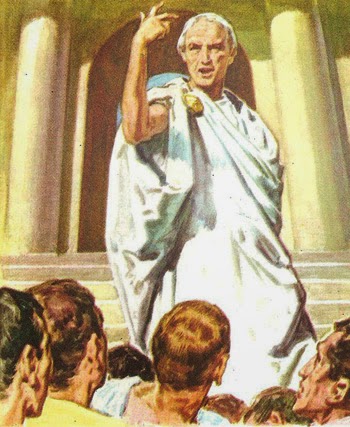Thank you,
Ruth of A Great Book Study and
Ekaterina of In My Book, for nominating me for
this Liebster Award! The Liebster Award is a way of spreading the word
about blogs in the vast community of book bloggers. It’s somewhat like a
chain letter or a slam book, but a lot more fun. Although Ruth and Ekaterina
nominated me for
my classiclit blog, I prefer to answer it here (in case
you haven’t known yet, this is where I blog about history & historical
fiction).
The
Rules:
*Thank the
blogger that nominated you and link back to their blog.
*Display the
award somewhere on your blog.
*List 11
facts about yourself.
*Answer 11
questions chosen by the blogger who nominated you.
*Come up
with 11 new questions to ask your nominees.
*Nominate
5-11 blogs that you think deserve the award and who have less than 1,000
followers. You may nominate blogs that have already received the award, but you
cannot re-nominate the blog that nominated you.
*Go to their
blog and inform them that they've been nominated.
Eleven
facts about me:
- I am an only
child, and I am always grateful of being one.
- My father is
an avid reader, and that’s why I become one myself, because I have never been
living in a house without books. In short, I grew up with books around!
- I liked
drawing pictures on a drawing book when I was a kid; mostly pictures of girls,
all with detailed clothes, hair styles, etc. (though that hobby faded along my
coming of age). But I was always lousy in coloring, either using crayon or
water colors!
- I was a
dancer too until I was in college. I loved modernized-traditional dances, and
have performed several times on local TV.
- I don’t like
to be among a lot of people most of the time, I prefer being solitary. I love
to hang around a bookstore alone, and often go to the theatre alone. *hey, who needs a company when you have a
good book with you?*
- I work as a
business assistant in a private trading company. There are only my boss and me,
and an office boy. Most of the time I am alone in my office, and I am very
comfortable with it. *please boss, don’t
ever think of hiring someone else, I’ll do everything myself, promise! :)*
- I like to do
various jobs, as it won’t get me bored, and I can learn many different (and
often unexpected) things. The other day I learned how plywoods were made from
logs, when I must provide a short article about it for one of our customers.
- I wear
glasses since I was eight years old (and became the only kid in 3rd
grade who wore glasses).
- I am allergic
to chicken and eggs. And as I have often a problem with sore throat, I must
keep off too sweet, too cold, spicy, and fried foods. It’s annoying, but it
helps me a lot to stay healthier.
- I am a
Catholic, and serve as a Lector at my local Church. Not surprising, really, eh…for
an avid reader?
- France is my
favorite country, Roman history my favorite subject, red is my color, and I
think French is the most beautiful language (I studied it years ago).
Ruth’s eleven questions for me:
I was
working on Ruth’s questions while finding that Ekaterina nominated me too, and
as answering 22 questions would be too much for me, I decided to answer only
Ruth’s. I hope you’d forgive me, Ekaterina! :) So, here they are:
1. Share a favorite quote from a
book or author.
I have a lot
of favorite quotes, but the most memorable is perhaps this: "A room without books is like a body without
a soul" ~Marcus Tullius Cicero. And Cicero is one of my favorite
history figures.
2. Is there a book you have
disliked immensely? Which one, and why?
I don’t
remember any. Usually I am quite good in judging a book I’d like to read. And
if I don’t feel comfortable from the first chapter, I will give it up for good.
My biggest failure is perhaps Dracula;
I could not continue it as it was too dark for me, and it really affected my
soul. Perhaps having kissed by a dementor
would feel like that! LOL…
3. Why did you start blogging?
Has your purpose changed? How did you come up with the name for your
blog?
To ‘capture’
my memory about certain book I have read, just as people take photos or videos
of their special moments in life. I don’t really good in creating name (and
don’t have the patience to do it), so it’s usually a summary of my blog’s
content. This blog bears the name ‘A Glimpse to the Past’ because reading
history and historical fiction is like taking glimpses of random events in the
past.
4. Have you ever counted how
many books you own? If not, estimate.
Never! I
keep discarding and adding books in my collection every now and then, so I can
never be sure about the number. It is perhaps more than 30 but less than 100.
:)
5. Which author have you read
the most?
Definitely
Agatha Christie! She was my favorite since I was in junior high school, and I
don’t even know how many books I have read. I also often forget that I have
read a certain title until I read the first chapter!
6. Which book have you reread
the most?
I have never
reread a book more than 3 times, but perhaps Agatha Christie’s Curtain, And Then Were None, and The
Murder of Roger Ackroyd are among the most.
7. Do you have a memorable
childhood book?
Tintin! I have read most of the series,
they are always entertaining, and I learned many things from them, especially
about countries and cultures.
8. Have you ever imagined an
actor/actress to play a character in a book you were reading? (For
example, I always thought Sharon Stone would make a great Dominique Francon in
the Fountainhead by Ayn Rand.)
The only
time I imagined a real actor to play a character in book was when I was reading
The Great Gatsby, with Leonardo
DiCaprio plays as Jay Gatsby. But that’s after I knew he would play it, though
before the movie was released. Not very imaginative, eh?
9. Is there a book you would
like to see in film version, permitting they kept it true to the book.
I am not a
book-to-movie fan, but I’d really like to see Robert Harris’ Cicero series in movie version; I think
I would love to feel the Roman atmosphere, and hear Cicero’s great oratories.
10. Name a character from
classic lit that you would love to be neighbors with.
Maybe Isabel
Archer of The Portrait of a Lady. I
admire her; she has an independent air, and I think it would be interesting to
have a chat with her sometimes, if only she lived in this century! ;)
11. What books are you avoiding, and
why?
Controversial
books that attack my Christian faith, such as Da Vinci Code. I haven’t read anything from Dan Brown. I have tried
Digital Fortress (which is neutral)
once, but got sleepy by it, so I give up on his books entirely.
Questions for my nominees:
- Who is your
most favorite book character? Why?
- Do you have
a full collection of books from one certain author? If yes, which author? If
no, are you planning to do that?
- When you are
starting a new book, can you tell from the beginning how much you would like it,
or you can only judge after finishing it?
- What book do
you want to reread the most right now?
- What was the
last book you rated 5/5 stars?
- The longest
book you’ve ever read is…. How many pages is it?
- What country
do you like most for book setting?
- When buying
book that has more than one edition, how do you decide which edition to pick?
- How do you
slip time to read books during your daily activities?
- Do you read
while traveling (when you are not driving, of course)?
- Do social
media hinder you from reading?
I nominated these great bloggers for the
Liebster Award:
Karen @
Books and Chocolate














